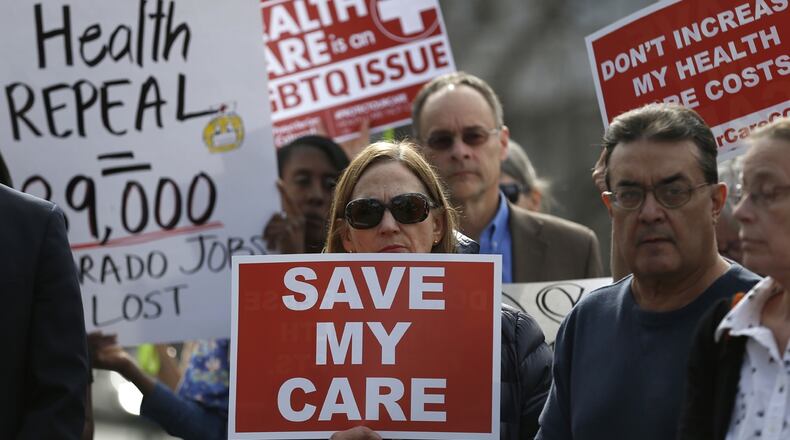Republicans such as Tom Price, secretary of Health and Human Services, keep claiming that their party's health-care plan will institute "patient-centered" reforms to the nation's health-care delivery system.
Yet every legitimate patient-advocacy group in the debate, from the American Cancer Society to AARP to the American Diabetes Association, strongly opposes the GOP plans.
"The various patchwork solutions offered by lawmakers would still leave the millions of patients we represent, who have serious and chronic health conditions, at risk of not being able to access life-saving treatments and care," 10 major patient-advocacy groups wrote in a letter to Congress last spring. "There is no substitute for fundamental, unequivocal protections for people with pre-existing conditions."
Price is a doctor by training, and he puts that credential to hard use by also claiming that the Republican approach will empower physicians and put doctors and patients back in charge of health-care decisions. If that were true, doctors and other medical providers ought to strongly back GOP initiatives.
Yet every mainstream provider group in the country, from the American Medical Association to the American Hospital Association to the American Nurses Association, has rejected both the House and Senate Republican reform efforts. The reason is pretty simple, as an analysis by Moody's Investor Services documents.
“Under the proposed Senate bill, both for-profit and not-for-profit hospitals would face weaker demand for services and higher rates of uncompensated care expense,” according to Daniel Steingart, a Moody vice president.
You also hear Republicans from President Trump on down claim almost endlessly that the Obamacare markets are collapsing, that the much-hyped death spiral has begun. The Congressional Budget Office disagrees, describing the market as "stable in most areas." A new study released by the Kaiser Family Foundation says the same thing.
“We’re not seeing any evidence of a death spiral or a market collapse,” says Cynthia Cox, Kaiser’s associate director of health reform and private insurance.
That's not to say there aren't problems. After seven years, every major initiative, in the private sector as well as the public sector, will need adjustments of the type that Congress has so far refused to consider. But in the short term, groups such as the Kaiser foundation, the CBO and the American Health Insurance Plans are unanimous that the biggest problem facing the insurance market is uncertainty that has been consciously created by President Trump and Republican leadership, and that only they can dispel.
Insurers need to know two things as they plan prices and policies for 2018:
1.) Will the administration continue to subsidize coverage for those patients requiring the most expensive care?
2.) Will it continue to enforce the mandate that people buy insurance?
The response to those questions from the Trump administration has been "maybe we will, and maybe we won't." As a result, insurers are forced to price their policies considerably higher to offset the additional risk they face. And according to Blue Cross Blue Shield and others, including the Chamber of Commerce, we now have "clear evidence that this uncertainty is undermining the individual insurance market for 2018 and stands to negatively impact millions of people."
But Mitch McConnell and his pals don't care. They don't care about getting a plan that will work, they're desperate to get a plan that will pass. As a result, a revised Senate plan reportedly contains an amendment by Sen. Ted Cruz that he calls the "consumer freedom option," designed to win conservative support. Yet experts say the Cruz proposal will create the very death spiral that they claim to abhor.
According to insurers, the plan "would fracture and segment insurance markets into separate risk pools and create an un-level playing field that would lead to widespread adverse selection and unstable health insurance markets."
The Kaiser Foundation is even more blunt:
“It’s not really freedom. It’s adverse selection,” warns Karen Pollitz, a senior fellow at Kaiser. “It would trigger the death spiral, like, overnight. This wouldn’t take years.”
This is what you get when you empower a party that has no interest or basic competence in governing.
About the Author
The Latest
Featured



